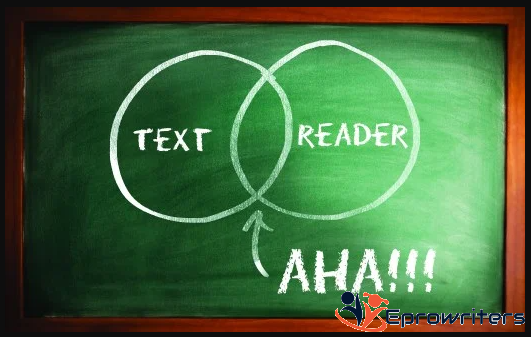- Top Quality Custom Essays
- +1 (628) 201-7932
- eprowriters01@gmail.com
Reading Journal for creative nonfiction
Reading Journal for creative nonfiction

Reading Journal
Last updated on October 3rd, 2023 at 04:04 pm
For the assigned readings in this creative nonfiction unit, you will be keeping a Reading Journal for creative nonfiction aimed at becoming attuned to the craft of the writer. You will examine a piece of creative nonfiction from the perspective of a “how to” essay. You will respond to particular passages in the reading and then summarize your response.
Reading Responses
Divide a sheet of paper into two columns. Label the top of one column, “Text,” and the top of the other column, “Response.” As you move through a given reading, copy into the “Text” column any passage that seems especially important, difficult, thought- provoking, inspiring, illogical, brilliant, misguided, well-articulated, or just plain stupid. Copy the passage – usually a sentence or two – word for word. Then, in the “Response” column, free-write your comments on the passage: your thoughts, gut reactions, flights of fancy, sense impressions. Your responses don’t have to be presented logically or even grammatically – just honestly. Do this for approximately TEN text passages.
For example:
“Shooting an Elephant,” by George Orwell
| TEXT | RESPONSE |
| In Moulmein, in lower Burma, I was hated by large numbers of people—the only time in my life that I have been important enough for this to happen to me. | Great opening line makes me want to know more. It’s so unusual, so frank. I’ve got to know the details of this hatred. |
| With one part of my mind I thought of the British Raj as an unspeakable tyranny, as something clamped down, in saecula saeculorum, upon the will of prostrate peoples; with another part I thought that the greates joy in the world would be to drive a bayonet into a Buddhist priest’s guts. | Here is a good example of how Orwell uses the academic, thesis-driven language of empire and colonialism, as evidenced in the first part of this sentence and in much of the first page of his piece; yet he also gets to the emotional heart of his story through a rather brutal image. It’s great evidence of his personal conflict between public duty and private conscience. |
| I had no intention of shooting the elephant—I had merely sent for the rifle to defend myself if necessary—and it is always unnerving to have a crowd following you. I marched down the hill, looking and feeling like a fool, with the rifle over my shoulder and an ever-growing army of people jostling at my heels. | Would it be better writing if he didn’t tell the reader he was feeling like a fool, didn’t name the emotion? Could he describe the scene, his actions, and thereby let the reader understand that he felt like a fool? |
| To come all that way, with two thousand people marching at my heels, and then to trail feebly away, having done nothing—no, that was impossible. The crowd would laugh at me. And my whole life, every white man’s life in the East, was one long struggle not to be laughed at. | Even though he keeps referring to abstractions like “white man” and “the East,” Orwell here shows rather then tells his story. He doesn’t say coward, but isn’t that what fear of being laughed at is? He’s afraid to stand up for what he believes. |
| It seemed dreadful to see the great beast lying there, powerless to move and yet powerless to die. I sent back for my small rifle and poured shot after shot into his heart and down his throat. They seemed to make no impression. The tortured gasps continued as steadily as the ticking of a clock. | Powerful stuff, emotional stuff. Here at the climax of the story, Orwell lets his description carry the reader into the emotional understanding of his cowardice. He never uses abstractions like “empire” or “guilt.” |
[… and so on for a total of about ten excerpts and responses.]
Summary: I was surprised how this famous piece of creative nonfiction uses so much abstract language to convey its message about the evils of the British empire in Southeast Asia, words like guilt and hatred and fool. Yet the reason it still has power is because, at the end, after we understand the intellectual significance of his role in the Empire and his conflicted feeling about his role, himself, and the Burmese, he hits us with the ghastly emotional reality: the agonizing death of an elephant he fails to properly kill. His personal experience of empire, gut=wrenching in its vivid detail, plus a great metaphor for the British presence in Burma, killing its unique cultural symbol. Wow!
Need help with this or similar assignment?
- Tell Us Your Requirements: Please provide us with the specifics of your paper so that we may do our best to personalize it. Select the discipline, word count, format, academic level, and other details on the order form.
- Connect with the Best Writer: Consult and collaborate with an expert and complete your paper on schedule.
- Monitor the progress: Control the work process by checking the completed parts of your document right away. You can easily submit your comments by chatting with your essay writer on our website.
- Download Your Paper: Get your paper written according to your specifications. It is important to note that you only pay for an essay when you are completely satisfied with the outcome. Please provide us your feedback about our collaboration.
About Us
Eprowriters.com, and its afilliate blog Eprowriters.net, is a custom essay writing service that has been providing academic support with great success for more than five years. We are constantly updating our objectives in order to improve the quality of service we deliver and increase client satisfaction. We’ve progressed to an original concept as a result of our success.


